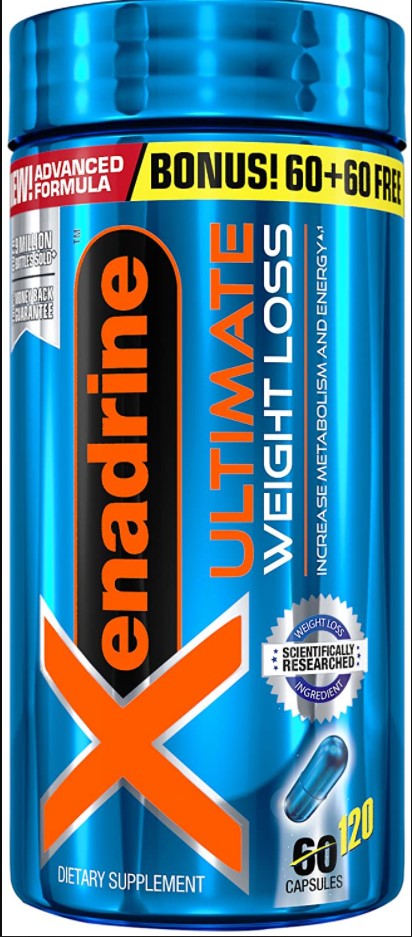An unfortunate case of a 28-year-old woman, who in the pursuit of losing weight took weight loss supplements and ended up with a cardiac disease!
A 28-year-old female, known case of bronchial asthma, presented with complaints of chest discomfort. She got diagnosed with systolic heart failure and was transferred to another hospital for further management. Serology revealed elevated beta-natriuretic peptide level of 572 pg/mL and elevated troponin of 54.5. During the presentation, the patient revealed that she had recently started using weight loss supplements with an aim to shed some pounds.
On admission, her heart rate was 99 beats per minute, blood pressure was 118/69 mm Hg, and oxygen saturation on room air was 99%.
Electrocardiogram (ECG) revealed sinus tachycardia with nonspecific ST changes in leads II, III, and AVF. Therefore, the doctors performed transthoracic echocardiogram, which showed an ejection fraction (EF) of 30% to 35% and hypokinesia of the inferior wall.
Subsequently, she underwent cardiac catheterization revealing clean coronary arteries with an EF of 20% to 25% and moderate diffuse hypokinesis of the left ventricular wall.
History:
Past medical history didn’t have any symptoms to suggest a viral aetiology. Moreover, the patient had no family history of coronary artery disease or sudden cardiac death.
Obstetric history revealed that she 2 successful pregnancies with 2 healthy kids without any no cardiac complications. The rest of the history was remarkable. However, the patient revealed using supplements to lose weight 1 month prior to presentation. She had recently started using xenadrine, a weight loss supplement 1 month ago. She took 8 tablets per day. Although before starting the supplements, the patient had no complaints dyspnoea, chest discomfort, paroxysmal nocturnal dyspnoea, or orthopnoea. Also, she was ambulating without any difficulty and could climb a few stairs with ease.
Additionally, the patient denied using tobacco, marijuana, cocaine, heroin, or LSD. During the hospital stay, the doctors educated her and counselled her to stop consuming the weight loss supplement.
After transferring her to the hospital, her urine toxicology screen was performed which was negative and so was the respiratory panel. Anti-nuclear- and anti-dsDNA antibodies were also negative. Serum creatinine, sodium, other electrolytes, and liver function tests were normal. Moreover, complete blood count and lactic acid was also normal.
Physical examination at the hospital after a month of weight loss supplements:
Physical examination revealed a female of normal height and built. She was oriented to time, place, and person. Moreover, she was comfortably lying without any signs of acute distress. The examiner noticed mild, bilateral, pitting oedema in the lower limbs. However, there was no jugular venous distention. Moreover, cardiac auscultation revealed normal sinus rhythm with normal S1 and S2 and chest auscultation revealed bilateral basilar crackles.
Chest X-ray revealed mild vascular congestion.
Right heart catheterization showed:
- Cardiac index of 3.44 L/min/m2
- Pulmonary capillary wedge pressure of 25 mm Hg
- Central venous pressure of 15 mm Hg
- Mean pulmonary artery pressure of 42 mm Hg
The patient received a diagnosis of dilated cardiomyopathy.
Management:
Beside stopping the weight loss supplements, the doctors started her on aspirin, furosemide, spironolactone, enalapril, and metoprolol.
After 1-week a two-dimensional echocardiography showed an ejection fraction (EF) of 45%. Thereafter, the doctors discharged her home in stable condition. They gave her instructions for outpatient follow-up.
During the follow-up, she was doing well and had no complaints.
Weight Loss Supplement:
Xenadrine, herbal dietary supplement, contains Ma Huang (ephedra alkaloid), caffeine, and guarana seed. The cardiac effects of Xenadrine are hypothesized to be due to the adrenergic effects of Ma Huang/ephedra.
References:
Sachdeva R, Sivasankaran S, Fishman RF, Zarich SW, McPherson CA. Coronary thrombosis related to use of Xenadrine RFA. Tex Heart Inst J. 2005;32(1):74-77.
Murtaza G, Adhikari S, Siddiqui I, Lu H, Kuruvilla A. Cardiomyopathy Related to a Weight Loss Supplement: A Case Report and Review of Literature. Journal of Investigative Medicine High Impact Case Reports. April 2017. doi:10.1177/2324709617711462




